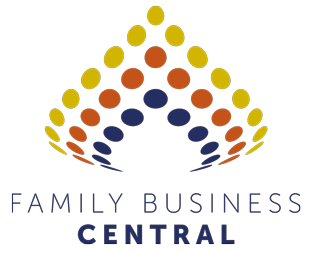
Kinkeeping
In every family, there’s usually someone quietly holding things together.
They’re the ones who remember birthdays and anniversaries.
Who organise the Christmas lunch and check in when someone’s struggling or upset.
Who make sure everyone’s looped in and no one is left behind.
In family businesses, these people play an even more powerful role — yet it’s one that is rarely acknowledged, let alone discussed.
This is kinkeeping.
A word you probably haven’t heard before, but once you understand it, you’ll see it everywhere.
What Is Kinkeeping — and Why Does It Matter?
Kinkeeping is the emotional labour that keeps families emotionally connected. It’s been studied in sociology for decades but not spoken about in family businesses.
And yet — it is so important.
In family businesses, kinkeepers often serve as the invisible glue holding everything together. They:
- Organise family gatherings
- Check in on family members during rough patches
- Remind everyone to celebrate birthdays and milestones
- Smooth over gripes and tension that can arise between family as they work together
- Regulate and monitor the emotional temperature across the family.
When done well, kinkeeping prevents small cracks from growing into deep divisions. It fosters trust and goodwill that makes business smoother. And it helps maintain the family part of family business.
But here’s the challenge:
👉 Kinkeeping is unpaid, mostly invisible, and often just ‘expected’.
👉 No one names it.
👉 It is barely acknowledged.
👉 No one plans for what happens if the kinkeeper burns out — or is no longer around.
It often evolves organically, without discussion — someone simply steps into the role, often by default rather than design.
But this is a problem.
If kinkeeping isn’t openly acknowledged as a vital family role, then when the current kinkeeper steps back, burns out, or passes away — no one is prepared. The emotional glue dissolves. And often, so do family relationships.
This isn’t just about love. This is what families are built on.
Why Is It Mostly Women?
Let’s be honest: kinkeeping is strongly gendered.
Research — and lived experience — show that mothers, grandmothers, daughters, and sisters are overwhelmingly the ones doing this work.
In family businesses, these women:
- Organise the group messages
- Reach out after a tense meeting
- Push for family holidays to stay on the calendar
- Bridge emotional gaps between family members
This unpaid, unacknowledged work is vital. It often makes the difference between a functioning business family and one mired in unresolved tension.
But it’s not without cost.
For women, kinkeeping can mean:
- Emotional exhaustion
- Less time for themselves
- Resentment when others get recognized for building the business (and making money), but their work and support holding the family together are rarely acknowledged, let alone get any financial recognition
- Pressure to be the “peacekeeper” even when it’s not fair
It’s time to ask:
👉 Is the current kinkeeper happy to hold that role?
👉 Could we share the load more evenly?
👉 Do we recognise the importance of kinkeeping as much as other roles in the family business?
👉 Could we acknowledge kinkeeping formally in our governance — perhaps through a family council?
👉 How do we move to recognising the importance of managing the family dynamics as much as we recognise managing the financial ones?
Let’s be More Intentional About Kinkeeping
In many families, kinkeeping just happens. No one decided it. It simply evolved — often passed from matriarch to daughter without conversation.
But that’s risky.
If families want to succeed long term — and maintain their connection across generations — then kinkeeping needs to become a conscious role. Not a burden. Not a default. A strategic, recognised pillar of the family’s future.
This means:
- Actively acknowledging the role and the person doing it
- Discussing succession and support for the role — not waiting until it’s too late
- Creating structures that support kinkeeping across the whole family
Kinkeeping Is Leadership. It’s Time to Treat It That Way.
What if we flipped the script?
Instead of seeing kinkeeping as invisible, emotional labour, we treated it as what it really is: leadership.
Because it is.
✔️ It’s foresight — seeing tension before it escalates
✔️ It’s emotional intelligence — staying calm, bridging divides
✔️ It’s influence — keeping people engaged even when things are hard
Strong family businesses don’t leave this to chance.
They identify the kinkeeper. They thank them. They support them.
And most importantly — they spread the responsibility.
Kinkeeping Is Strategic
Kinkeeping might be invisible. But it’s never insignificant.
In fact, for many families, it’s the most important factor holding the legacy together.
If you’re serious about long-term success — and about honouring the relationships that built the business — this is where to start:
✔️ Notice who’s doing the emotional labour
✔️ Thank them
✔️ Share the load
✔️ Talk about what happens next
It may be the best investment your family ever makes.


